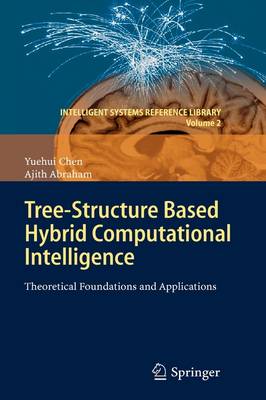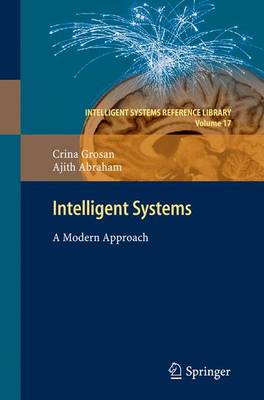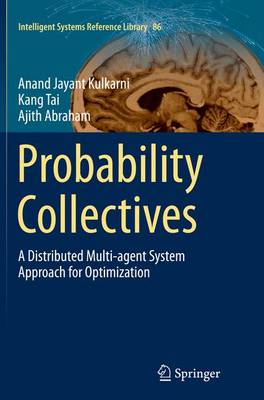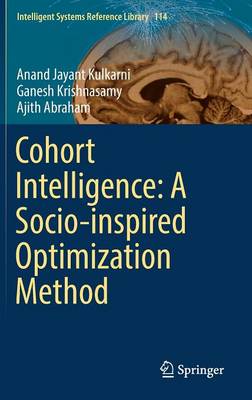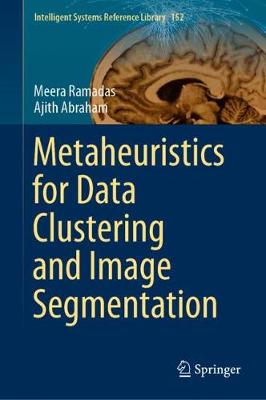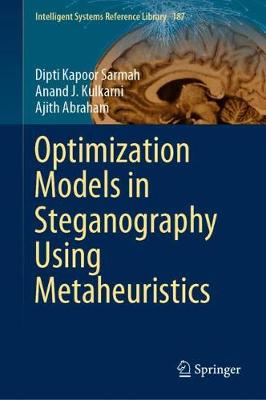Intelligent Systems Reference Library
6 primary works
Book 2
Tree-Structure based Hybrid Computational Intelligence
by Yuehui Chen and Ajith Abraham
Research in computational intelligence is directed toward building thinking machines and improving our understanding of intelligence. As evident, the ultimate achievement in this field would be to mimic or exceed human cognitive capabilities including reasoning, recognition, creativity, emotions, understanding, learning and so on. In this book, the authors illustrate an hybrid computational intelligence framework and it applications for various problem solving tasks. Based on tree-structure based encoding and the specific function operators, the models can be flexibly constructed and evolved by using simple computational intelligence techniques. The main idea behind this model is the flexible neural tree, which is very adaptive, accurate and efficient. Based on the pre-defined instruction/operator sets, a flexible neural tree model can be created and evolved.
This volume comprises of 6 chapters including an introductory chapter giving the fundamental definitions and the last Chapter provides some important research challenges. Academics, scientists as well as engineers engaged in research, development and application of computational intelligence techniques and data mining will find the comprehensive coverage of this book invaluable.
Book 17
Computational intelligence is a well-established paradigm, where new theories with a sound biological understanding have been evolving. The current experimental systems have many of the characteristics of biological computers (brains in other words) and are beginning to be built to perform a variety of tasks that are difficult or impossible to do with conventional computers. As evident, the ultimate achievement in this field would be to mimic or exceed human cognitive capabilities including reasoning, recognition, creativity, emotions, understanding, learning and so on. This book comprising of 17 chapters offers a step-by-step introduction (in a chronological order) to the various modern computational intelligence tools used in practical problem solving. Staring with different search techniques including informed and uninformed search, heuristic search, minmax, alpha-beta pruning methods, evolutionary algorithms and swarm intelligent techniques; the authors illustrate the design of knowledge-based systems and advanced expert systems, which incorporate uncertainty and fuzziness. Machine learning algorithms including decision trees and artificial neural networks are presented and finally the fundamentals of hybrid intelligent systems are also depicted.
Academics, scientists as well as engineers engaged in research, development and application of computational intelligence techniques, machine learning and data mining would find the comprehensive coverage of this book invaluable.
Book 86
Probability Collectives
by Anand Jayant Kulkarni, Kang Tai, and Ajith Abraham
This book provides an emerging computational intelligence tool in the framework of collective intelligence for modeling and controlling distributed multi-agent systems referred to as Probability Collectives. In the modified Probability Collectives methodology a number of constraint handling techniques are incorporated, which also reduces the computational complexity and improved the convergence and efficiency. Numerous examples and real world problems are used for illustration, which may also allow the reader to gain further insight into the associated concepts.
Book 114
Cohort Intelligence: A Socio-inspired Optimization Method
by Anand Jayant Kulkarni, Ganesh Krishnasamy, and Ajith Abraham
This Volume discusses the underlying principles and analysis of the different concepts associated with an emerging socio-inspired optimization tool referred to as Cohort Intelligence (CI). CI algorithms have been coded in Matlab and are freely available from the link provided inside the book. The book demonstrates the ability of CI methodology for solving combinatorial problems such as Traveling Salesman Problem and Knapsack Problem in addition to real world applications from the healthcare, inventory, supply chain optimization and Cross-Border transportation. The inherent ability of handling constraints based on probability distribution is also revealed and proved using these problems.
Book 152
Metaheuristics for Data Clustering and Image Segmentation
by Meera Ramadas and Ajith Abraham
In this book, differential evolution and its modified variants are applied to the clustering of data and images. Metaheuristics have emerged as potential algorithms for dealing with complex optimization problems, which are otherwise difficult to solve using traditional methods. In this regard, differential evolution is considered to be a highly promising technique for optimization and is being used to solve various real-time problems. The book studies the algorithms in detail, tests them on a range of test images, and carefully analyzes their performance. Accordingly, it offers a valuable reference guide for all researchers, students and practitioners working in the fields of artificial intelligence, optimization and data analytics.
Book 187
Optimization Models in Steganography Using Metaheuristics
by Dipti Kapoor Sarmah, Anand J. Kulkarni, and Ajith Abraham
This book explores the use of a socio-inspired optimization algorithm (the Cohort Intelligence algorithm), along with Cognitive Computing and a Multi-Random Start Local Search optimization algorithm. One of the most important types of media used for steganography is the JPEG image. Considering four important aspects of steganography techniques - picture quality, high data-hiding capacity, secret text security and computational time - the book provides extensive information on four novel image-based steganography approaches that employ JPEG compression. Academics, scientists and engineers engaged in research, development and application of steganography techniques, optimization and data analytics will find the book's comprehensive coverage an invaluable resource.
